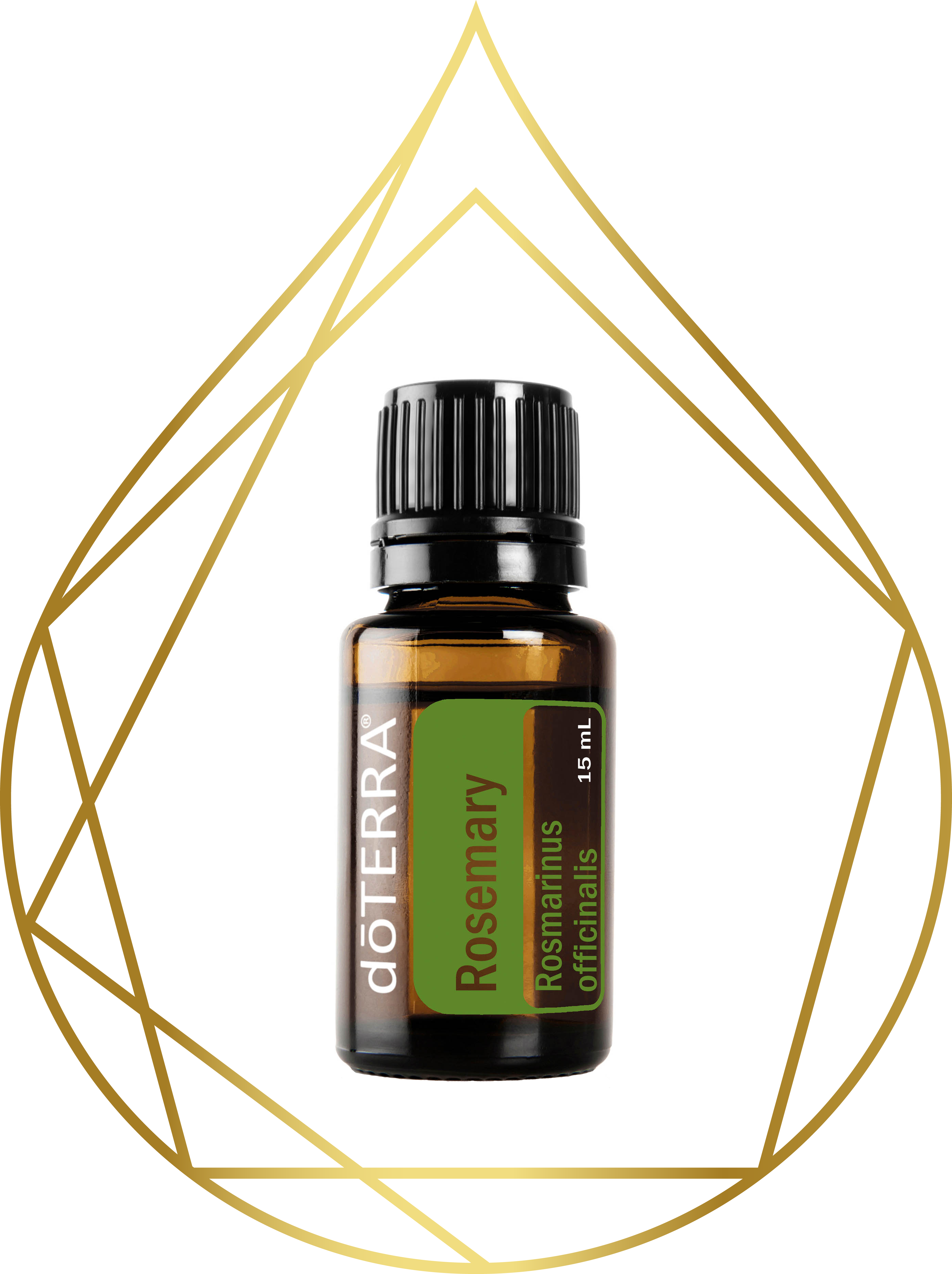
Primary Benefits
Supports healthy digestion when consumed
Internal use may help support healthy respiratory function
When taken internally, may help to reduce nervous tension and occasional fatigue
Aromatic Description
Camphoraceous, Herbaceous
Collection Method
Steam Distillation
Plant Part
Flower, Leaf
Main Constituents
1, 8-Cineole, α-pinene, camphor
While it is frequently used for cooking, Rosemary has long been revered by many cultures for its internal benefits and energizing scent.
Description
Rosemary is an aromatic, evergreen shrub whose leaves are frequently used to flavor foods such as stuffings, pork, roast lamb, chicken, and turkey. Along with its culinary applications, Rosemary has many benefits. Rosemary supports healthy digestion and internal organ function when ingested.* Long revered by experts, Rosemary was considered sacred by the ancient Greek, Roman, Egyptian, and Hebrew cultures. Rosemary’s herbaceous and energizing scent is frequently used in aromatherapy. Taken internally it helps to reduce nervous tension and occasional fatigue.
Uses
Diffuse to create an atmosphere conducive for studying.
Take internally to help reduce nervous tension and occasional fatigue.
Add 1–2 drops of Rosemary essential oil to meats and favorite entrées for flavoring and to support healthy digestion.
Directions for Use
Diffusion: Use three to four drops in the diffuser of your choice.
Internal Use: Dilute one drop in 4 fl. oz. of liquid.
Topical use: Apply one to two drops to desired area. Dilute with carrier oil to minimize any skin sensitivity. See additional precautions below.
Cautions
Possible skin sensitivity. Keep out of reach of children. If you are pregnant, nursing, or under a doctor’s care, consult your physician. Avoid contact with eyes, inner ears, and sensitive areas.





*These statements have not been evaluated by the Food and Drug Administration. Products listed on this website are not intended to diagnose, treat, cure or prevent any disease.